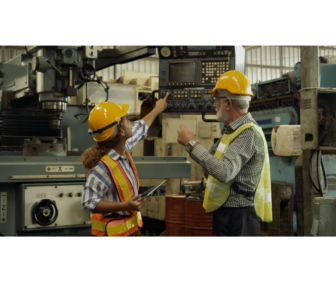This post was originally published in November 2017. It is arguably more relevant today than then. As Farhad Manjoo details in a recent New York Times column coding will not be a high-paid occupation for much longer. As this post made clear technical/occupation specific skills are not foundational to successful forty-year careers. That what is foundational are the six Cs. And that developing those broader skills is what makes the liberal arts and getting a BA or more so valuable over a forty-year career.
Crain’s Detroit Business recently reported that Governor Snyder is going to propose that coding earn a foreign language credit in high schools. This would be part of a major initiative to push more Michigan high school and college students into computer science occupations.![]()
In a recent interview with Bloomberg TV technology entrepreneur Mark Cuban said:
The people who are writing software, unless you are doing advanced things, they’re gone. … I personally think there’s going to be a greater demand in 10 years for liberal arts majors than there were for programming majors and maybe even engineering. When the data is all being spit out for you, options are being spit out for you, you need a different perspective in order to have a different view of the data. In particular, experts in philosophy or foreign languages will ultimately command the most interest from employers in the next decade.
So Cuban––who started his career as a programmer––believes sooner rather than later the occupations our Governor wants more and more of our kids to pursue are going to be automated away. That what is coming is the automation of automation. That software––not humans––will increasingly do the coding and programming. That what humans will be needed for is not math-based work, but rather understanding what to do with data. And that comes from the liberal arts––including foreign languages––not STEM-based skills.
Who knows if Cuban is right about the degree and timing of when automation will take over coding and programming. I sure don’t. But I sure wouldn’t dismiss him. There is a reasonable chance that he is right. What we know is that automation is going to transform work. We just don’t know what occupations and when.
This is the debate we should be having most now about the education system we want for all kids in Michigan. One path is represented by the Governor and many other public officials and business leaders. Educate other’s kids for the jobs in demand by Michigan employers today. The other, as represented by Cuban, is to educate all kids to build the skills needed for a successful forty-year career, not a first job. In a world where we know many occupations are going to be continuously automated away.
We clearly prefer the latter. The education system we recommend in our new state policy agenda is:
Our education policy recommendations are built on two core principles:
First, that all children deserve the same education no matter whom their parents are. Without that we cannot live up to the core American value of equal opportunity for all.
We are on the opposite track at the moment as both a country and a state. The education that is provided for affluent kids is, by and large, designed and executed differently than it is for non-affluent kids. One system delivers a broad college prep (dare we say liberal arts) education, the other delivers an increasingly narrow education built around developing discipline and teaching what is on the test or narrowly preparing non-affluent children for a first job.
The second is that none of us has a clue what the jobs and occupations of the future will be. Today’s jobs are not a good indicator of what jobs will be when today’s K-12 students finish their careers in the 2050s or 2060s. We simply don’t know how smarter and smarter machines are going to change labor markets. So the purpose of pre K-12 education (maybe even pre K-16) is to build foundation skills that allow all Michigan children to have the agility and ability to constantly switch occupations.
To thrive in the new economy, workers have to be adaptable, have a broad base of knowledge, be creative problem solvers and be able to communicate and work well with others. In other words, workers need to be really good at all of the non-algorithmic skills computers aren’t good at yet.
The best definition we’ve found for this complex set of skills comes from the book Becoming Brilliant, by learning scientists Roberta Michnick Golinkoff and Kathy Hirsh-Pasek, who label these skills the six Cs: collaboration, communication, content, critical thinking, creativity and confidence.
These are the skills students will need to complement rather than be replaced by machines, solve today’s problems, and create new solutions to problems we can’t yet envision.
If Michigan is going to be a place with a broad middle class, if employers are going to have the supply of skilled workers they need and if Michigan is going to be a place once again where kids regularly do better than their parents, it will happen because the state made a commitment to provide an education system for all from birth through higher education that builds rigorous broad skills that are the foundation of successful 40 year careers.







